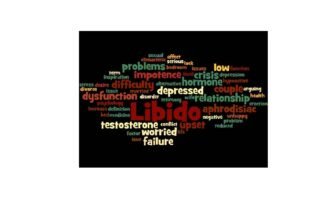Weight Loss Happens Because of Calorie Deficit
The gap between the calories you consume and the calories you expend determines how much weight you lose. If you spend more calories than you consume, you lose weight; conversely, if you consume more calories than you spend, you will gain weight.
While trying to eat less can help you lose weight, increasing your physical movement will help you burn more calories than just dieting can. However, exercise can not be performed by everyone. The good news is that healthy eating to lose weight does not require constant dieting.
- Studies have shown that strict dieting frequently fails and may even have the opposite effect, causing dieters to gain back extra weight than they lost in the first place.
- Making good daily food choices is the best approach to maintaining a healthy weight or shedding weight when necessary.
- Nutritionists suggest that we alter our perspective on eating. We need to see food for what it is, a valuable tool to fuel our bodies rather than as emotional comfort.
Control Carb Intake
Decreasing your intake of carbohydrates usually decreases your hunger and results in weight reduction that is either automatic or occurs with calorie control. However, some people find that a low-carb diet enables them to eat until they are delighted and still lose weight.
- Based on a person’s age, sex, and body type, carbohydrate restrictions should be placed daily to help them lose weight.
- Some people restrict their daily carb consumption to under a hundred grams to lose weight.
- According to research, low-carb diets can be a useful component of a successful weight loss plan. Your intake of carbohydrates is limited, while your intake of protein and veggies is increased in this diet.
Eat Protein
A high-protein diet increases metabolism, curbs appetite, and controls weight. Protein is a crucial component of any diet for growth and effective metabolism. In addition, protein can make you feel fuller longer and prevent excessive hunger.
According to a study, eating high-protein food as an afternoon snack helped people feel fuller and eat fewer calories at dinner. Adding a tablespoon of chia seeds to breakfast or doubling the number of eggs in your meal plans are easy ways to enhance your protein intake. If you usually have a carb-based meal, you might consider moving to a protein-based meal instead.
- People who eat a high amount of protein during breakfast consume fewer calories at lunch than those who eat a breakfast consisting of carbs.
- Additionally, people consumed fewer calories the rest of the day.
- Fish, lentils, almonds, and chicken are a few foods high in protein.
Have More Fibre Rich Food
Insoluble and soluble are the two main categories used to categorize fiber as their interactions with the water in your body differ. Insoluble fiber mainly helps as a bulking agent to help smooth bowel movements and assist the junk moving done the gut; meanwhile, it does not combine with water. In addition, it can aid with digestive problems relief.
- Beta-glucan and glucomannan are examples of soluble fiber that combine with water to generate a viscous, gel-like substance that delays the frequency at which the stomach releases digested food into the intestine.
- Eating more soluble fiber can avoid gaining weight and decrease belly fat.
Vegetables are Great for Your Health
One of the most excellent and fastest ways to lose weight is to cover half your meal with veggies. It is because greens are nutrient-rich, which means they contain few calories. Of course, you must be in a calorie deficit to lose weight, but you shouldn’t feel hungry because if you do, you won’t be able to maintain it.
- Vegetables are low in calories and abundant in water and fiber.
- A cup of rice contains roughly 200 calories, while a cup of veggies contains about 50 calories.
Drink Plenty of Water
The stomach sends messages to the brain instructing it to cease eating when it is complete. Water can help individuals stay satiated longer and eat less by filling up the stomach. Another situation people face is when they think they are hungry, but in reality, they need water. Try having a glass of water before reaching for food to prevent mindless nibbling.
- Water consumption may temporarily enhance the body’s maximum energy consumption or the number of calories expended while resting.
- Drinking cold water may improve the number of calories burned because the body spends calories heating the water for digestion.
Our kidneys retain vital nutrients and electrolytes while filtering waste with water. As a result, people who accumulate fluid waste in their bodies may experience bloating and fatigue.
In addition, the waist size might grow more significantly due to bloating. Therefore, an intelligent approach to prevent retaining waste fluid, which could result in a few extra pounds, is to stay hydrated.
Avoid Sugary Drinks
As liquid calories can not make you feel full like calories from solid meals do, it’s straightforward to ingest too many calories from sugary drinks. In addition, people who regularly consume sugary and artificially sweetened beverages have increased body fat levels. A variety of healthy options can replace soft drinks.
- A simple glass of water flavored with fresh mint or cucumber is cooling and low in calories.
- One can add lime or lemon to sparkling water to give it some taste.
- Teas that are herbal or green are also good drinks. In addition, additional health advantages are offered by certain teas.
- Fruit juices typically include a lot of sugar. Since whole fruits contain fiber but fruit juice doesn’t, it is preferable to consume whole fruit instead of juice.
- You can try some blood sugar supplements that lower blood sugar naturally
Drink Black Coffee
Most people who regularly consume coffee do so with the addition of calorie-dense ingredients like sugar, flavors, or cream. A recent study found that as a result, instead of being a zero-calorie drink, the typical calorie content of a cup of coffee skyrockets to eighty calories.
- You’ll save close to 500 calories each week by drinking your coffee black.
- You will also reduce your chance of developing metabolic diseases like insulin resistance and diabetes.
Chew Your Food
When you chew your food thoroughly, you eat more slowly, linked to lower calorie intake, a more incredible feeling of fullness, and smaller serving sizes. It is why your body weight can be affected heavily by eating too quickly or too fast.
- According to a recent study, fast eaters are further likely to gain weight than slow eaters.
Practice Intermittent Fasting
Intermittent fasting can be done in a few different ways, including the eat-stop-eat and the 16:8 method.
- Intermittent fasting typically causes you to consume fewer calories overall without having to limit calories when you are eating intentionally.
Have a Look At Your Food Portions
Individuals who are more knowledgeable about food preparation are more likely to consume a wide range of vegetables and other highly nutritious foods, which are excellent for losing weight. Eat from smaller dishes and bowls at home because it will help you consume fewer calories.
Eating from smaller containers deceives your brain into believing that you are eating more than you are. When consuming nutritious foods like salads or roasted vegetables, act oppositely.
- Never consume anything from a package, not even healthy snacks.
- After portioning some out into a plate, place the box or bag in storage.
- Consider your options before you go to a restaurant, as portion control can be more challenging while eating out because of the big serving sizes.
Have A Cup of Green Tea
Antioxidants are abundant in green tea, which is a natural beverage. As a result, green tea has numerous advantages, including greater fat burning and loss of weight.
- Green tea may boost belly fat burning by up to twenty percent and increase energy expenditure.
Eat Eggs
The best food for losing weight is eggs. They are affordable, low in calories, and high in protein. Eggs are also packed with several vitamins and minerals. Compared to diets with low protein amounts, high-protein foods have been demonstrated to decrease hunger and boost feelings of fullness. Eating eggs might also encourage you to consume fewer calories for the rest of the day.
- Eating eggs may result in a weight loss of up to fifty percent more over several weeks than eating carbs for breakfast.
Sleep for 8 Hours
It is known that lack of sleep can result in weight gain. People who are sleep deprived create more ghrelin, a hormone that stimulates appetite. Furthermore, they make less leptin, which alerts you when you’ve had enough to eat.
Evidence shows that people who are too tired consume more calories and carbs from comfort foods. And it should come as no wonder that fatigue makes it more challenging to rein in your impulses.
- Maintaining weight and overall health depend on getting a good night’s sleep.
- A lack of sleep can disrupt body metabolism.
- A person’s chance of being overweight or obese can increase if they have less than eight hours of sleep per night.






